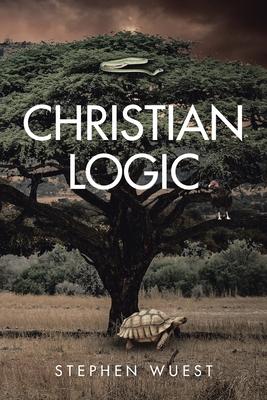This text is about fusing logic and moral theory and is definitely from a Christian worldview. It is written on a level for AP high school or, at most, second-year college use. But the text is for Christian laypeople.
The goals of this book include presenting modern deductive logic, modern logical notation, and the twenty rules of inference. These describe what modern deductive logic is.
However, orthodox Christians must go further--they must be exposed to historical moral-ethical (ME) models. And they must think carefully about how to integrate Christian morality into modern logic and use this fusion to have a sound methodology to analyze modern arguments.
Given the popularity of logically incoherent conspiracy theories, this approach to formal logic enters through the door of what historical Christians would call (roughly) "our shared reality." Also, given the abundance of partial or invalid or unsound arguments that Americans encounter, the analysis of arguments in this book will heavily deal with dysfunctional arguments.
Putting these topics together in a synthesized way, in a Christian worldview, results in a product that reasons across disciplines and is perhaps politically incorrect. But the author is convinced that this combination of skills is what American Christians need.
